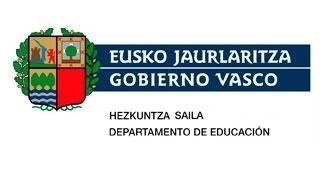Research Assistant - Development of Electronic Structure Methods for Excited States (Closed)
ematito@dipc.org
david.casanova@dipc.org
We are currently accepting applications for the above mentioned position. This is a unique opportunity for highly motivated students recently graduated from the University in Physics or related fields to gain research experience in one of DIPC’s high-profile research teams.
The role
Within the realm of electronic structure methods, Density Functional Theory (DFT) stands as one of the most widely utilized techniques, with applications spanning various scientific domains. Over the past three decades, computational molecular modeling has undergone a pivotal transformation, transitioning from its foundations in wavefunction theory (WFT)-based methods to the prominence of DFT. This shift primarily stems from the computational demands of WFT methods, despite their exceptional accuracy, rendering them impractical for the analysis of large molecules. Although recent advancements in computational power, coupled with local-correlation and linear-scaling techniques, have reignited interest in WFT for medium-sized systems, the routine application of WFT calculations to molecules exceeding 200 atoms remains an arduous challenge. This complexity further intensifies when our aim is to investigate the excited states of molecular systems, a scenario frequently entailing phenomena like charge transfer and multiple excitations.
The overarching objective of this doctoral thesis is the development of a novel, cost-effective electronic structure methodology tailored for the precise and efficient exploration of electronic excited states and photophysical processes within molecular systems. The method will be used to comprehensively model and characterize the optical and electronic properties of molecules from a theoretical and computational standpoint. The prospective student will play a pivotal role in advancing this pursuit by participating in the formulation and implementation of cutting-edge multireference wavefunction methods. These methodologies will incorporate essential corrections to account for elusive dynamic correlation effects. The technical implementation of these techniques will be undertaken within the frameworks of PySCF and Q-Chem codes.
We seek candidates who possess a solid foundation in theoretical and computational chemistry, complemented by programming expertise. Proficiency in programming languages such as C++ and Python will be considered advantageous. If you are enthusiastic about pushing the boundaries of electronic structure theory and unlocking new frontiers in computational molecular modeling, we invite you to join our dynamic research team. This Ph.D. position offers a unique opportunity to contribute to groundbreaking advancements in the field while honing your expertise in both theory and computation.
Desired background & competences
Working conditions
- Estimated annual gross salary: Salary is commensurate with qualifications and consistent with our pay scales
- Target start date: 2024/01/01
We provide a highly stimulating research environment, and unique professional career development opportunities.
We offer and promote a diverse and inclusive environment and welcomes applicants regardless of age, disability, gender, nationality, ethnicity, religion, sexual orientation or gender identity.
The center
About the team
How to apply
Interested candidates should submit an updated CV and a brief statement of interest to the following application email below.
Reference letters are welcome but not indispensable.
The reference of the specific opening to which the candidate is applying should be stated in the subject line, and the application must be received before the application deadline.
Although candidates are welcome to contact the project supervisors to know further details about the proposed research activity, please be aware that the application will be evaluated only if it is submitted directly to the email address listed below as application email.
- Reference: 2023/93
- Application deadline: 2023/10/08
- Application email: jobs.research@dipc.org
Selection process
Applications received by the deadline will be evaluated by a Committee designed by the DIPC board on the basis of the following criteria:
- CV of the candidate (60%)
- Adequacy of the candidate’s scientific background to the project (20%)
- Reference letters (10%)
- Other: Diversity in gender, race, nationality, etc. (10%)
Evaluation results will be communicated to the candidates soon after. Positions will only be filled if qualified candidates are found.
The DIPC may revoke its decision if the candidate fails to join by the appointed time, in which case the position will be awarded to the candidate with the next highest score, provided it is above 50 (out of 100).
However, the selected candidate may keep the position if, in the opinion of the Selection Committee, the candidate duly justifies the reasons why he or she cannot join before the specified deadline, and as long as the project allows it.
This project has received funding from the Basque Government’s grant program “PIBA” under grant number PIBA_2023_1_0055

